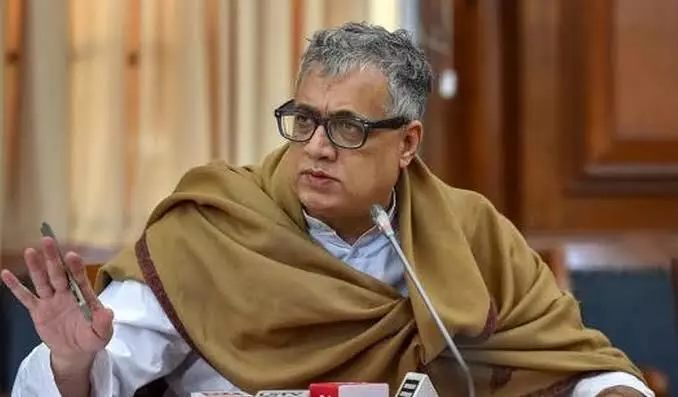Cess 'slitting throat of federalism': Derek O'Brien

New Delhi: Trinamool Congress Rajya Sabha leader Derek O'Brien on Friday said the cess going to the Centre is "slitting the throat of federalism", and noted that several states have voiced concern over the shrinking divisive pool of tax revenues. In a blogpost, the TMC Rajya Sabha Leader said, "In all the hoopla about GST, the four-letter word which is slitting the throat of federalism is CESS". "Funds collected as cess go 100 percent to the Union government. Not a rupee is shared with the State governments," he said.
O'Brien said in 2012, cess formed 7 per cent of the Union government's total tax revenues, while in 2025, cess is estimated to be about 20 per cent of the Union government's total tax revenues. He said Rs 5.7 lakh crore of cess and surcharge has been lying unutilised since 2019. "22 states, including many ruled by the BJP, had protested against the shrinking divisible pool. These states asked the 16th Finance Commission for a larger share of tax collections - currently 41 per cent, to be raised to 50 per cent," he said. "As per RBI, the divisible pool has shrunk from 89 per cent of gross tax revenue in 2011 to 79 per cent in 2021. This, despite the 10 per cent increase in tax devolution to states as recommended by the 14th Finance Commission," he said. The TMC leader added that between 2015 and 2024, cess (in operation) has increased by 462 per cent (over Rs 2 lakh crore). Cess is imposed as an additional tax besides the existing tax and the proceeds may or may not be shared with the states. A divisible pool is a portion of Gross Tax Revenue distributed between states and Centre. It comprises all taxes except surcharges and cess levied for specific purpose. O'Brien also quoted former West Bengal Finance Minister Amit Mitra, and said GST rationalisation is a good step, provided the common people get the benefit, also pointing out that an anti-profiteering committee that ensured the lower GST would be passed on to the consumers, has been discontinued. "Second, there also remains the question of how states will be compensated. Eleven ministers in the GST Council had asked for compensation, their voices were muffled," he said. "Third, the revenue secretary said in the press conference that revenue loss will be Rs 48,000 crore. But he didn't take into account the supply chain. It will, easily, be over rupees one lakh crore," he added.
O'Brien also said that a Parliamentary Select Committee, of which he also was a member, in its 2015 report on the GST Bill, had recommended that GST should not exceed 18 per cent, and multiplicity of taxes should be avoided. "Now, done. Better late than never," he said. The GST Council on Wednesday approved a two-tier rate structure of 5 and 18 per cent, which will be implemented from September 22. Earlier, opposition-ruled states had voiced concern about the revenue implications of the rationalisation and sought a compensation mechanism. However, in the council meeting, the states came together and decided to reduce tax rates for the common person.



